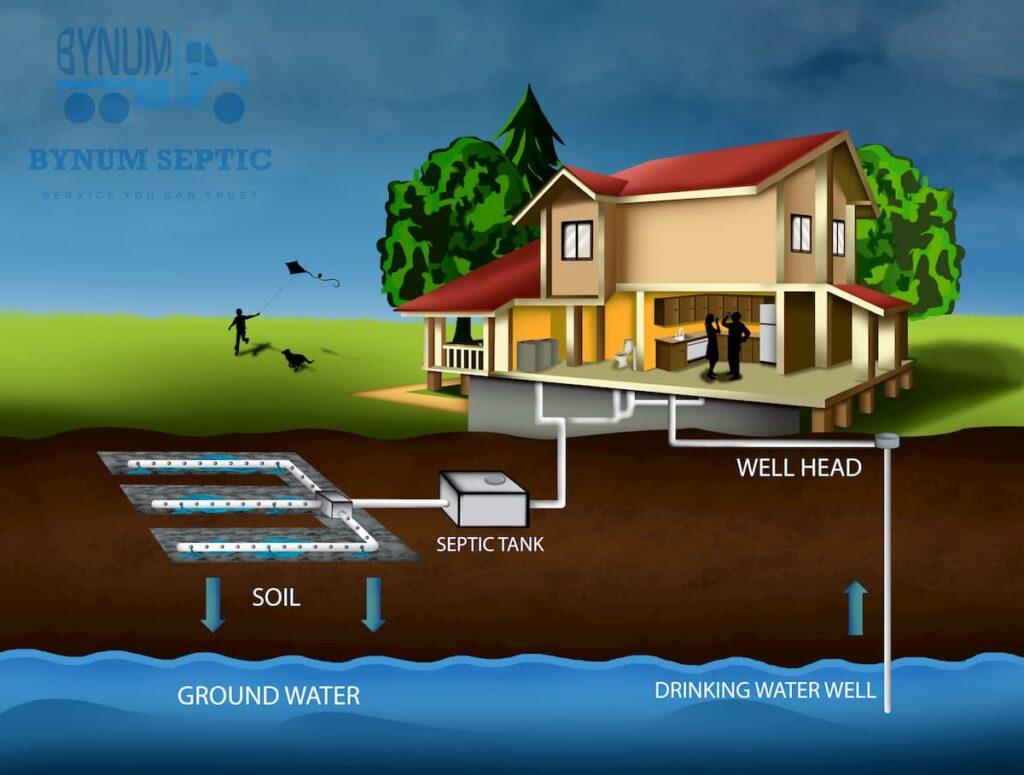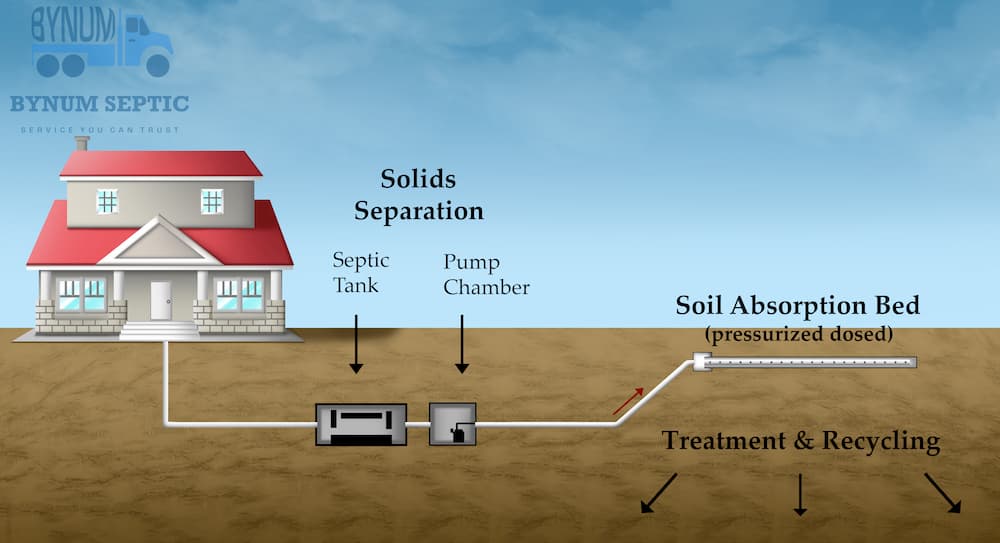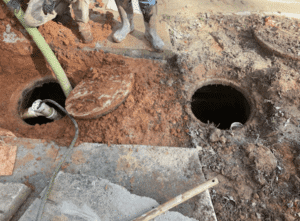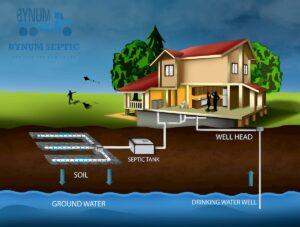If you recently purchased an older home or want to explore options for a new septic tank installation for your property, then our septic tank buyer’s guide is here to help. We’ll give you all the information you need to know before investing in a septic tank and tips for getting the best lifespan out of your new septic system.
What Does a Septic Tank Do?
A septic tank is an underground, water-tight container used to hold your home’s wastewater. As wastewater sits in the tank, solids (sludge) settle to the bottom while fats, oil, and grease (scum) rise to the top. The liquid wastewater then exits the tank and spreads evenly through the drain field. Once in the drain field, the wastewater percolates in the soil, reentering the environment and allowing nature to remove bacteria and viruses. This clever system contains and eliminates dangerous sewage – keeping you and your family safe – while recycling wastewater back into the environment.

Questions to Ask Before Investing in a Septic Tank
How big of a septic tank do I need?
The size of your septic tank will depend on the number of people who live in your home. For example, a 3-4 bedroom home should have a least a 1,000-gallon septic tank. Then, for every additional bedroom, you can add another 250 gallons. You need to invest in a large enough septic tank to prevent overflow and backup in your septic system.
What is the best material for my septic tank?
There are four main materials used for septic tanks: concrete, steel, plastic, and fiberglass. Each has advantages and disadvantages, so it’s best to talk to a professional when choosing the right septic tank material for your home.
Do I need a permit for septic tank installation?
Before septic tank installation on your property, you must have a permit from your local government office. This is important because poor installation or waste treatment will reduce underground water quality and potentially harm you and the homes around you. Contact a professional to help guide you through the permitting process.
Signs You Need a New Septic Tank
Septic systems are an important part of keeping your home sanitary and safe. When you’re having an issue or need to invest in a new septic tank, you need to know the signs. After all, septic tanks are only built to last about 20-30 years on average. At the end of this time, you’ll need to work with an expert to determine your best next steps.
Look out for these signs you need a new septic tank.
- Your drains are slow.
- You notice greener grass in the drain field above your septic tank.
- There is a foul odor coming from your drains.
- You have discolored or contaminated water.
- There is standing water in your drain field.
Tips for Maintaining Your Septic Tank
The average lifespan of a septic tank can range from 15-40 years. How long your system lasts will depend on how well you maintain and take care of your septic system. Here are some tips on dos and don’ts for getting the best lifespan out of your septic tank.
- Be careful what you flush and put down the drain – No wipes, cat litter, cigarettes, coffee grounds, grease, or feminine hygiene products.
- Don’t overuse water – Spread out laundry days, and try not to run the washing machine, dishwasher, and shower at the same time.
- Protect your drain field – Don’t plant trees too close to your drain field. Keep cars and heavy equipment off your drain field.
- Schedule septic tank pumping – We recommend scheduling an inspection and septic tank pumping every 3-5 years.
Need Help with Your Septic Tank?
With many size and material options available – not to mention the hassle of zoning and permitting – you’ll need help from some local experts for your septic tank installation near Lawrenceville and Lilburn, GA. At Bynum Septic, we have decades of experience installing, repairing, and inspecting septic systems. We can recommend the best solutions to you, ensuring a long-lasting and reliable septic tank. Give us a call today to learn more!







